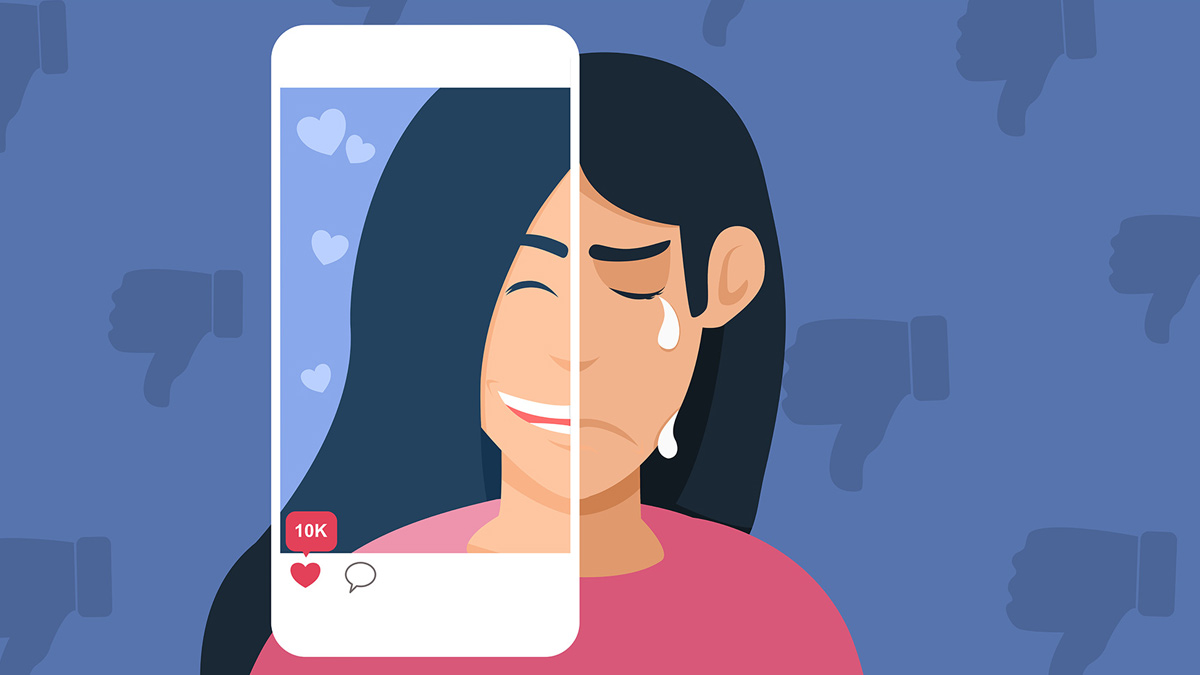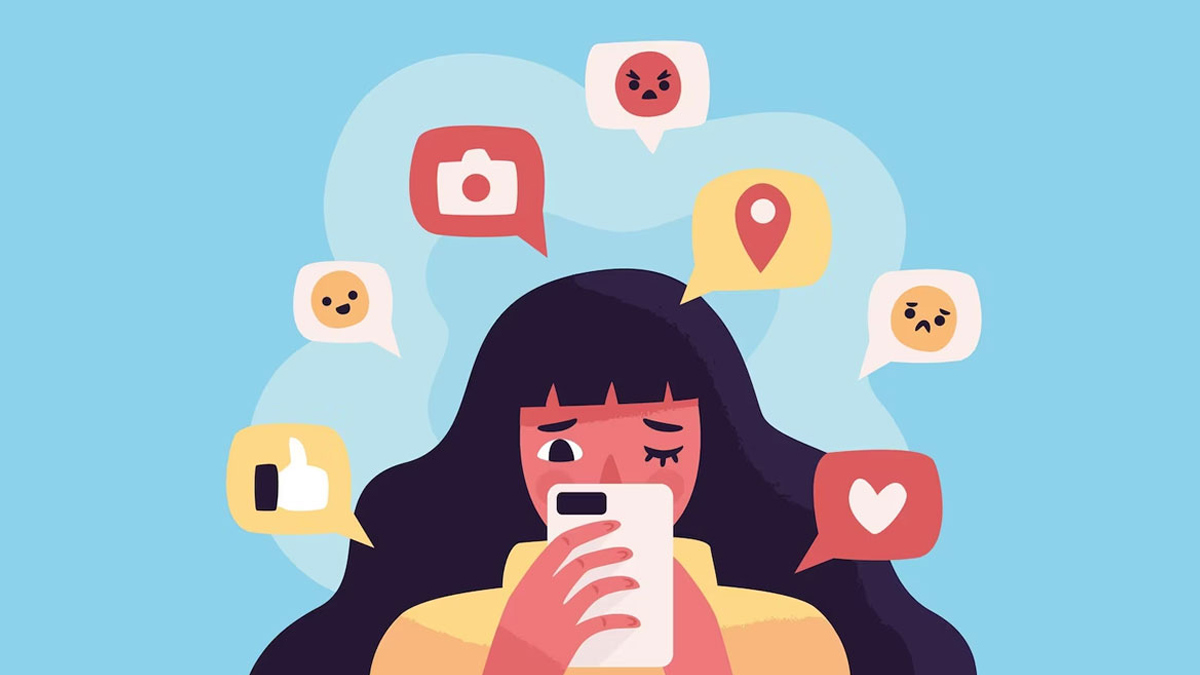
In the bustling world of social media, where physical health trends like rice water hair and the 12-3-30 workout vie for attention, a quieter but equally significant conversation about mental health is gaining traction. From self-proclaimed "Social Media Therapists" to influencers discussing the "lucky girl syndrome," the platform is teeming with discussions about mental well-being. However, amidst the myriad of voices, it's crucial to discern between helpful insights and potentially harmful misinformation. Here, we delve into seven prevalent mental health trends circulating on social media, exploring their origins, impact, and veracity.
Table of Content:-
7 Prevalent Mental Health Trends On Social Media

Letting Intrusive Thoughts Win
Instagram's penchant for breaking taboos extends to discussions around "intrusive thoughts." Videos tagged as "letting intrusive thoughts win" depict users succumbing to impulsive urges, such as smashing ice on a car window or pressing elevator alarms. However, these portrayals often conflate intrusive thoughts with impulsive actions, overlooking the nuanced nature of conditions like obsessive-compulsive disorder (OCD). In reality, intrusive thoughts are persistent, distressing obsessions typically associated with anxiety disorders, requiring therapy and understanding rather than trivialization.
The Self-Diagnosing Phenomenon
While Instagram's POV videos foster solidarity among individuals grappling with mental health challenges, they also fuel rampant self-diagnoses. With an alarming 84% of mental health videos on social media deemed misleading, there's growing concern over users diagnosing themselves based on skewed portrayals of conditions like dissociative identity disorder and bipolar disorder. This trend, driven by misinterpretations and oversimplifications, risks trivializing genuine mental health struggles and underscores the importance of seeking professional diagnoses.
Also Read: 10 Disney Characters You Never Realised Suffered From Mental Disorders
Lucky Girl Syndrome
The emergence of "lucky girl syndrome" epitomizes social media's fascination with positive affirmations and manifestation. Advocates of this trend espouse the belief that positive thinking manifests positive outcomes, attributing fortunate events to a mindset of luck. While proponents tout its benefits for mental health and motivation, sceptics caution against overlooking the role of coincidence and the limitations of positive thinking alone. Amidst debates on its efficacy, lucky girl syndrome serves as a testament to social media's influence in shaping narratives around mental well-being.
Digital Detox
In response to digital overwhelm, social media influencers champion the merits of a "digital detox" – a deliberate reduction in screen time to alleviate anxiety and enhance productivity. As users share tips for disconnecting from devices, scientific evidence supports the benefits of such practices, citing improved focus and sleep quality. This trend underscores the role of social media in promoting holistic approaches to mental wellness, resonating with audiences seeking respite from digital saturation.
Hot Girl Walk
Aptly coined "hot girl walk," this trend extols the mental and physical benefits of daily walks, framing self-care as an empowering act. By reframing mundane activities as affirmations of personal well-being, influencers celebrate the transformative power of routine and movement. Amidst an era of heightened self-awareness, the hot girl walk trend redefines conventional notions of beauty and wellness, prioritizing holistic health over superficial ideals.
Stupid Mental Health
In a tongue-in-cheek nod to the complexities of self-care, social media influencers embrace the "stupid mental health" trend, humorously acknowledging the challenges of prioritizing well-being. Through candid depictions of mundane self-care rituals, users confront the stigma surrounding mental health struggles, fostering a sense of solidarity and levity amidst adversity. By normalizing the pursuit of mental wellness, this trend encourages self-compassion and resilience in the face of everyday challenges.
Also Read: 7 Brain Disorders That Totally Mess With Your Perception of Reality
POV: This is What It's Like….
As a bastion of authenticity, Instagram's POV videos offer unfiltered glimpses into the lived experiences of individuals navigating mental health conditions. From raw confessions to light-hearted anecdotes, these videos foster empathy and understanding, challenging societal taboos and fostering a culture of openness. By amplifying marginalized voices and destigmatizing mental health discussions, TikTok emerges as a platform for communal healing and empowerment.
Bottomline
In a digital landscape teeming with curated personas and idealized narratives, mental health trends on social media offer a refreshing dose of authenticity and vulnerability. By sparking candid conversations and fostering solidarity, these trends redefine conventional notions of well-being, empowering individuals to navigate the complexities of mental health with courage and compassion.
Also watch this video
How we keep this article up to date:
We work with experts and keep a close eye on the latest in health and wellness. Whenever there is a new research or helpful information, we update our articles with accurate and useful advice.
Current Version
